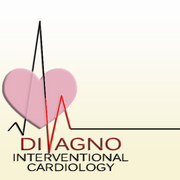How Does Alcohol Affect Heart Health?

It’s often said that moderate alcohol consumption can be good for your heart health. However, overdoing it can negatively impact your cardiac care and may even result in serious health issues over time. This guide explains how alcohol can affect your heart, as well as what you can do to limit your drinking and protect your cardiovascular system.
What Moderation Means
In general, the American Heart Association® recommends not drinking if you don’t currently. This is especially true for people with serious medical conditions or pregnant women. If you do drink, moderation is key to maintaining good health. For women, one standard drink per day is recommended, and for men, it’s two standard drinks a day. Keep in mind that drink sizes vary depending on the potency of the alcohol you’re consuming.
The Negative Impacts of Alcohol on Your Heart
 Drinking beyond moderate levels has direct impacts on cardiac care. For example, excessive alcohol consumption leads to an increased level of bad cholesterol, raising the risk of a heart attack or stroke. Binge drinking, which is defined as having four or more drinks in two hours, is linked to an increased risk of heart failure and blood clots. Finally, drinking in excess can raise blood pressure and cause cardiomyopathy, which is a disease that affects the heart muscles.
Drinking beyond moderate levels has direct impacts on cardiac care. For example, excessive alcohol consumption leads to an increased level of bad cholesterol, raising the risk of a heart attack or stroke. Binge drinking, which is defined as having four or more drinks in two hours, is linked to an increased risk of heart failure and blood clots. Finally, drinking in excess can raise blood pressure and cause cardiomyopathy, which is a disease that affects the heart muscles.
How to Stop a Drinking Problem
Limit your exposure to alcohol and drinking, at least until you feel stronger against temptation. If you feel like you can’t do it on your own, reach out for help. Rehab centers and support groups can teach you healthier ways of coping, such as meditation and yoga, while providing you with a shoulder to lean on throughout your recovery. Plus, professionals can help with the effects of alcohol withdrawal, including headaches, nausea, and anxiety.
If you’re concerned about the effects of alcohol on your heart, contact a cardiac care specialist. DiVagno Interventional Cardiology, MD, PA in Bergen County, NJ, is equipped to perform a range of tests to determine your heart health. From there, they’ll devise a treatment strategy that suits your specific needs, whether you have problems with high blood pressure, peripheral artery disease, or another condition. Schedule an appointment today by calling (201) 845-3535. Learn more about their services by visiting the website.
About the Business


